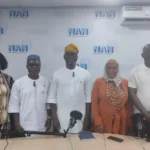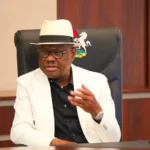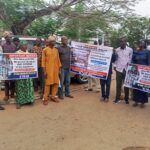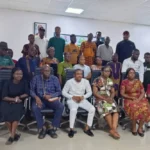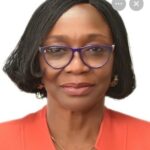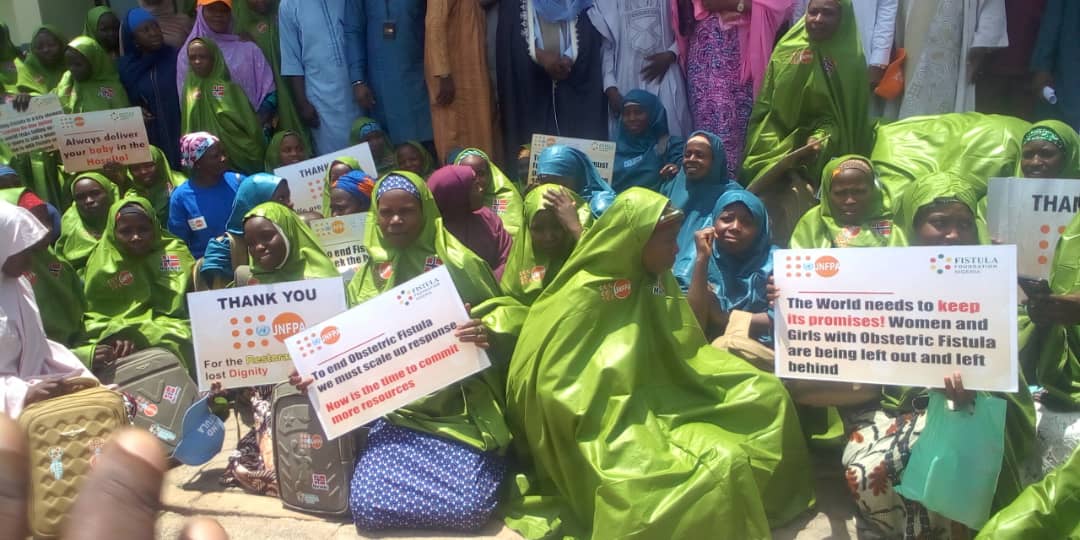By Hajara Leman, News Agency of Nigeria (NAN)
For many women living with Vesico-vaginal Fistula (VVF), life becomes a cycle of shame, humiliation, and social isolation.
Rejected by spouses, stigmatised by communities and often abandoned by family, they are pushed to the fringes of society.
But that tide is turning in Gombe State where a beacon of hope now shines through the efforts of the Fistula Foundation funded by the United Nations Population Fund (UNFPA).
Dr Isa Musa, Executive Director, Fistula Foundation, said that the foundation’s effort was more than a medical programme.
He said the foundation’s work was restoring dignity, purpose, and identity to women who were once cast aside.
The director said that since its inception in 2023, 291 VVF cases had been successfully repaired–a monumental achievement in North-East and Nigeria at large.
Nonetheless, he said that the real miracle happened beyond the operating theatre.
“We do not just stitch wounds; we stitch hope back together.
“In 2024 alone, 50 women who underwent successful surgeries were enrolled in post-surgery rehabilitation, which includes vocational skills training, another 50 are slated for the 2025 intake.’’
He said that the most profound impact came from the advocates– women who were once patients themselves.
“These trained community educators now sensitise traditional birth attendants, and local women, encouraging early treatment and dispelling myths surrounding the condition.
“These advocates are breaking the chains of ignorance and cultural shame; they are changing mind sets and helping women seek help with dignity,” he said.
According to him, one of such advocates has already identified and referred 30 women to the centre.
Dr Garba Buwa, a fistula surgeon in specialist hospital, said that while fistula surgeries had previously been conducted in the state through outreach programmes led by former governors’ wives, the centre began its first surgery as a recognised facility in September 2023.
Buwa, who is the Deputy Director, Medical Services, Gombe State Ministry of Health, offered more insights.
“This was through a ‘pool effort’, which brings patients from across the country following a nationwide call via media.
“Each session treats 30 to 50 women, and surgeries are held at no cost, with patients provided meals and transportation.
“The UNFPA funds the pool effort through the Fistula Foundation, while routine Thursday procedures are backed by the National Health Insurance Scheme (NHIS) via the Federal Ministry of Health.
“To date, more than 500 women have registered under the programme.
“Of those, 291 received surgeries; others were managed conservatively—some healed with catheter isolation, while others had conditions unrelated to fistula, such as overactive bladders or urinary tract infections.’’
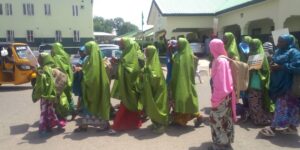
He said the centre collaborated with an internationally recognised fistula surgeon who handled complex cases and trained upcoming specialists.
Beyond surgery, Buwa said that empowerment remained key as the government had empowered 50 women in 2024 and planned to support 50 more.
“With more partners, we can do even better.”
He said that the centre faced serious challenges as it was short on trained fistula surgeons and nurses.
According to him, some doctors are interested, but they need specialised training and certification.
Buwa, who also heads the VVF centre, said that space was another constraint.
“We are in a borrowed facility; the operating theatre is mainly used for general surgeries; these women deserve a dedicated space.’’
He revealed that both the federal and Gombe State Governments are constructing a dedicated fistula theatre.
Buwa said that women needed a place to stay before and after their surgeries and expressed optimism that the planned fistula complex would solve that.
He called for stronger collaboration to bridge manpower and infrastructure gaps, especially as women were travelling from across Nigeria for care.
Dr Habu Dahiru, Gombe State Commissioner of Health, highlighted the state’s progress.
“When this administration came in 2019, maternal mortality was high, with fistula a key contributor.
“Today, with improved antenatal care, surgical interventions, and partners like the UNFPA and Fistula Foundation, we are making visible progress,” he said.
More so, the Federal Ministry of Health Fistula Desk Officer, Dr Faruk Usman, said Nigeria accounted for 40 per cent of the global fistula burden.
“We are committed to reducing that in line with the global target of eradicating fistula by 2030; this is not just a health issue; it is a human rights matter,” he said.
UNFPA’s Gombe Coordinator, Dr Olarenwaju Bajuwa, said there was a growing confidence among previously silent sufferers.
According to him, people are beginning to come out for treatment which is a good development.
Experts say obstetric fistula is more than a medical condition; it is a life-altering experience that often leaves women isolated, ashamed, and forgotten.
Many affected women endure years of pain and stigma, waiting for the chance to reclaim their dignity.
Women who have faced unimaginable hardship but emerged with resilience, hope, and a renewed sense of purpose– thanks to timely intervention, surgery and empowerment–recount their experience.
Malama Jummai Ibrahim lived with fistula for over 20 years, enduring continuous urine leakage after childbirth complications.
In 2024, the Fistula Foundation gave her a second chance.
“I am now an advocate; I referred several women to the centre; I am grateful to the foundation and the Gombe Government,” she said.
Another survivor, Malama Naziyatu Adamu, who developed fistula after a botched surgical procedure, said for months, she suffered in silence, until the Foundation intervened.
According to Adamu, she visits houses in her communities to identify sufferers and ensure they receive help.
“So far, I have helped two women get treated; I also received a sewing machine that now supports my family,” she said.
Another survivor, Malama Safiya Hussaini, developed fistula after a complex home birth.
“I went to the hospital before my due date, but they told me it was not time.
“Four days later, both babies came in breech position; labour lasted an hour, but left permanent damage.
“For 14 years, I lived in shame; many women in my condition are abandoned, but my husband stood by me.
“I beg other men; support your wives; the answer is treatment, not rejection,” she said.
Stakeholders say obstetric fistula remains a major health concern in developing regions, caused by prolonged and obstructed labour without timely medical care.
The condition often leads not just to chronic health issues but also social exclusion, psychological trauma, and economic hardship.
It is the submission of health experts that the solution lies in a holistic approach–combining surgical care with emotional support, empowerment, and sustained community engagement. (NANFeatures)
***If used, please credit the writer and the News Agency of Nigeria (NAN)

